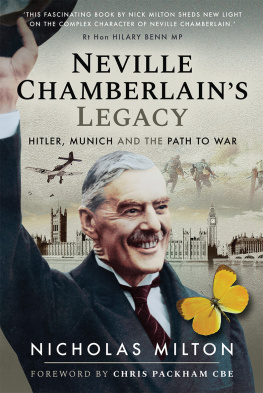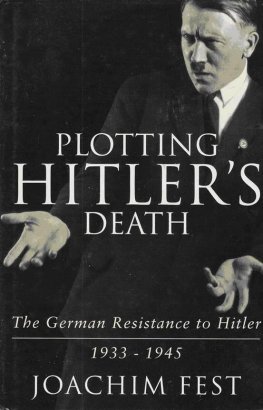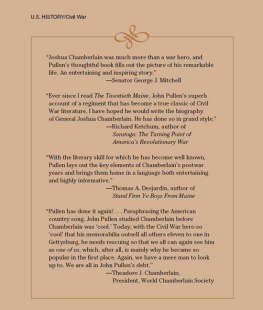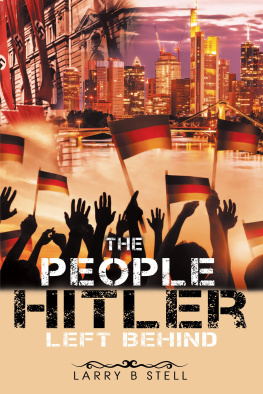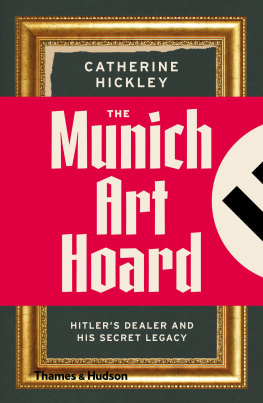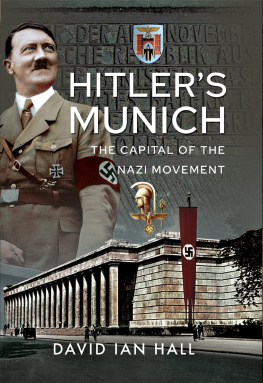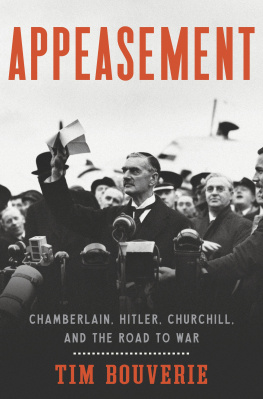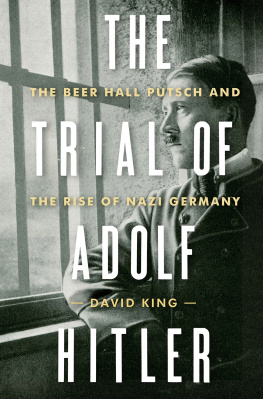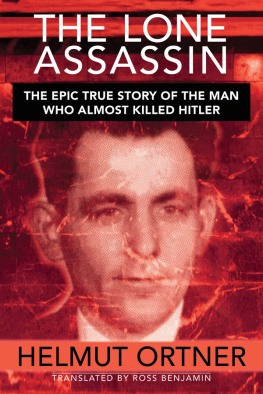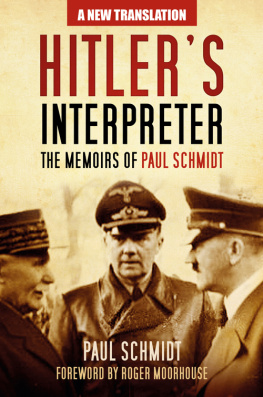Nicholas Milton - Neville Chamberlains Legacy : Hitler, Munich and the Path to War
Here you can read online Nicholas Milton - Neville Chamberlains Legacy : Hitler, Munich and the Path to War full text of the book (entire story) in english for free. Download pdf and epub, get meaning, cover and reviews about this ebook. year: 2020, publisher: Casemate Publishers & Book Distributors, LLC, genre: Non-fiction. Description of the work, (preface) as well as reviews are available. Best literature library LitArk.com created for fans of good reading and offers a wide selection of genres:
Romance novel
Science fiction
Adventure
Detective
Science
History
Home and family
Prose
Art
Politics
Computer
Non-fiction
Religion
Business
Children
Humor
Choose a favorite category and find really read worthwhile books. Enjoy immersion in the world of imagination, feel the emotions of the characters or learn something new for yourself, make an fascinating discovery.
- Book:Neville Chamberlains Legacy : Hitler, Munich and the Path to War
- Author:
- Publisher:Casemate Publishers & Book Distributors, LLC
- Genre:
- Year:2020
- Rating:5 / 5
- Favourites:Add to favourites
- Your mark:
- 100
- 1
- 2
- 3
- 4
- 5
Neville Chamberlains Legacy : Hitler, Munich and the Path to War: summary, description and annotation
We offer to read an annotation, description, summary or preface (depends on what the author of the book "Neville Chamberlains Legacy : Hitler, Munich and the Path to War" wrote himself). If you haven't found the necessary information about the book — write in the comments, we will try to find it.
Neville Chamberlains Legacy : Hitler, Munich and the Path to War — read online for free the complete book (whole text) full work
Below is the text of the book, divided by pages. System saving the place of the last page read, allows you to conveniently read the book "Neville Chamberlains Legacy : Hitler, Munich and the Path to War" online for free, without having to search again every time where you left off. Put a bookmark, and you can go to the page where you finished reading at any time.
Font size:
Interval:
Bookmark:

Neville Chamberlains Legacy
I am haunted by grainy black and white images of war. The war that my parents endured and survived, and shared with me in my formative years. The war that culminated in the unsurpassable horror of two mushroom clouds over Japan and precipitated my sleepless childhood nights waiting to duck and cover, the futility of which was never hidden from my terrified racing mind. I know why we like sunrises, worship their glowing joy; its because we have survived another night, that night when the missiles didnt launch and I could run down the garden, vault the fence and land in the footsteps of Neville Chamberlain.
And how damned bizarre is that? The very man who Id heard broadcasting from the cabinet office in 1939 No such undertaking has been received, and that consequently, this country is at war That very posh bloke, in a bow tie and tux, with his big moustache and black eyes, his harrowed brow, whose voice defines agony for me, whose beaten syllables were the touch paper for a global catastrophe that will always be beyond my imagination. How could we achieve any direct connection?
Life. A love of life. A love of living things.
History is almost as good as natural history; and when it draws a par its because its stories connect, make circles, join us together as people across the ages. When we smile, laugh, wince or cry at the same things, when big people who have changed all our destinies share moments with little people like us, then we become part of the world and see with greater clarity our time and place in it. Chamberlain had impacted upon me. I knew that from the World at War in 1973, but until now I had no idea that we had another, deeper connection; moths and birds: finding, studying, counting, cataloguing, and, critically, being principally excited by. Those jewels, those simple masterpieces of nature, which Churchill and Hitler probably swatted or stepped over, were the source of a lifelong fascination, of a largely secret appreciation, a refuge for unparalleled joy and happiness, his breathing space in the choking tensions of thirties Britain.
Wow! Chamberlain Nev, as I would call him if we were sharing binoculars in a hide put up bird boxes and tables to the bemusement of his staff, spotted Redwings in St Jamess Park, Hey Hoed Ramones-style when he discovered a Blackbird mimicking a Song Thrush in Downing Street where he also discovered a Leopard Moth and enthusiastically reported it in The Countryman which, he wrote to his sister, also included remarks about my tits. Oo-er!, So Carry on Springwatch!
But lets be clear. What these beautiful insights provide is part of the essential context of this book. The man was overshadowed by others, but these nature notes, these windows to his lifelong passion seem to offer some humble proof of his purity of purpose, his honest dedication to provide proper public service in times of extraordinary difficulty. They make a statesman of enormous historical importance a real man. And I cant help but wonder how many species have been on the Downing Street bird list of Thatcher, Blair and May. Maybe if there were such lists our world would be a different place.
Sometimes we need bridges to join minds and motion, little links to spark a simple connection across political, social, religious and ideological divides. That can fuel and invite change, and this book made me change my mind about a man I thought was a posh, bow-tied bloke who told my parents that their world was about to get blown to bits. Nev is now on my imaginary dinner party guest list. Well, sort of. I dont do dinner parties, but he would be welcome to help me empty my moth trap.
Chris Packham
New Forest, 2018
Foreword by Rt Hon Hilary Benn MP
This fascinating book by Nick Milton sheds new light on the complex character of Neville Chamberlain.
Many people know about his work on social housing, but not that he championed the introduction of widows pensions and worked to improve midwifery. And the insight into Chamberlains profound love of nature will come as a revelation; a reminder that there is more to political figures, even Tory Prime Ministers, than many a quick judgement allows.
History, however, will rightly remember him for his disastrous appeasement of Hitler. Milton reminds us that at the time of Munich, Chamberlain was greeted as a hero because he seemed to have secured peace but it was an illusion, and the nation and the world learned at great cost that the only way to deal with Hitlers fascism was to defeat it.
W hat was really going on in the mind of Prime Minister Neville Chamberlain in the run up to the declaration of the Second World War? How did he cope with the catastrophic consequences of appeasing Adolf Hitler? And how relevant is his controversial legacy today? This book seeks to provide answers to those questions.
As a military historian I thought I knew all about appeasement, the 1938 Munich agreement and the subsequent path to war. Then I read Chamberlains weekly private letters to his two younger sisters, Hilda and Ida, and discovered there was much I didnt know about the backdrop to these momentous political events. These included Chamberlains other war legacy: helping to create the Air Raid Precautions organisation, the Womens Land Army and the Special Operations Executive. However, as a natural historian, the most revelatory to me was Chamberlains love of nature and the vital role that birdwatching played in his Premiership.
In his youth, Chamberlain was an expert in lepidopterology, the study of butterflies and moths. His interests later extended to botany, ornithology, angling, shooting and forestry. He didnt do well at school, but thanks to his family name and his wife, Annie, he finally found his niche in business and then politics. As Lord Mayor of Birmingham during the First World War, he created a municipal savings bank and championed national service while his wife looked after the troops. Despite pushing fifty years of age by the time he finally entered Parliament, his rise to the top remains to this day one of the quickest in political history.
As Minister for Health, he helped create affordable homes and championed widows pensions and a midwifery service. As Chancellor, he led the economic recovery in the mid-1930s following the Great Depression. In doing this, Chamberlain taxed the divi, or dividend, at Co-op stores, forging their alliance with the Labour Party, a relationship that continues to this day in the form of the Co-operative Party. Chamberlain also made cuts to Britains defences, a move that was to cost it dear in the years to come. When, in 1937, he became Prime Minister, his time soon became dominated by foreign affairs, particularly his controversial policy of appeasement towards Nazi Germany.
Chamberlains private letters are as close as we will ever get to finding out what he was really thinking when he tried, unsuccessfully, to appease Hitler before looking into the abyss of war. They reveal a lot about Chamberlain the politician, too often self-righteous, especially when it came to his belief in the fabled Chamberlain touch. Yet they also show a man who wanted, at almost any cost, to prevent another world war because of the horrors he had witnessed during the first, particularly the death of his cousin Norman. Far from the impersonal bureaucrat his critics accused him of being, his letters to his two sisters show he was a sensitive, loving father and, in unprecedented times, found it tough at the top.
When it came to his political colleagues, the letters reveal Chamberlains complex relationship with Winston Churchill and the enmity he felt towards Lloyd George, Prime Minister during the First World War, and the Labour Party. Like many Tories of his generation, Chamberlain came from a privileged background and while he championed the plight of working-class people, he also commented that they were unrefined and ugly. He enjoyed mixing with royalty and visiting his beloved Chequers, the grace-and-favour country estate bequeathed to sitting British Prime Ministers. He also set up the Conservative Research Department, the first think tank on the right of politics. However, what the letters truly lay bare is the amazing lengths to which he went to win over Mussolini or Musso as he nicknamed him. His dogged attempt to drive a wedge between the Italian dictator and Hitler was matched only by his persistent denial of a Nazi attack in the west despite so much evidence to the contrary.
Next pageFont size:
Interval:
Bookmark:
Similar books «Neville Chamberlains Legacy : Hitler, Munich and the Path to War»
Look at similar books to Neville Chamberlains Legacy : Hitler, Munich and the Path to War. We have selected literature similar in name and meaning in the hope of providing readers with more options to find new, interesting, not yet read works.
Discussion, reviews of the book Neville Chamberlains Legacy : Hitler, Munich and the Path to War and just readers' own opinions. Leave your comments, write what you think about the work, its meaning or the main characters. Specify what exactly you liked and what you didn't like, and why you think so.

